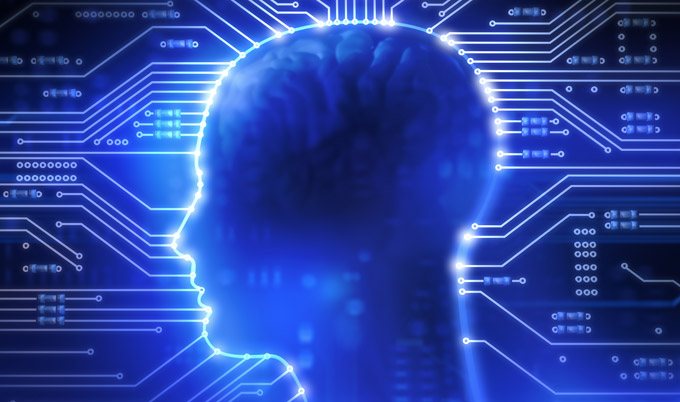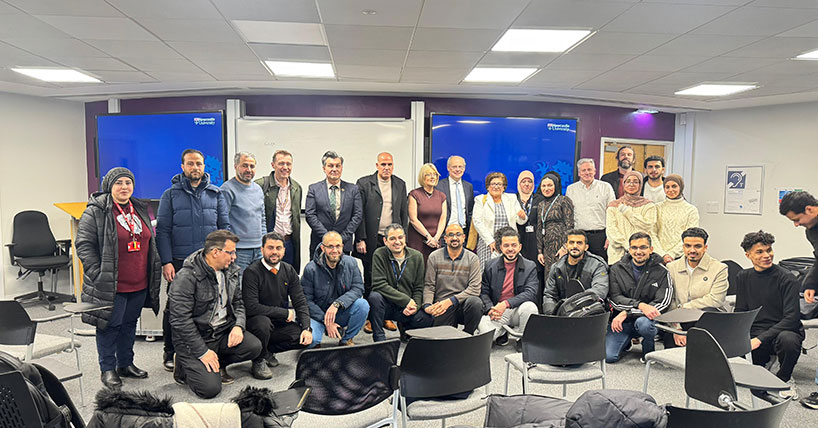Brain predicts speech
What’s coming next? Scientists identify how the brain predicts speech
Published on: 25 April 2017
An international collaboration of neuroscientists has shed light on how the brain helps us to predict what is coming next in speech.
Publishing in PLOS Biology, the scientists from Newcastle University, and a neurosurgery group at the University of Iowa, USA, report that they have discovered mechanisms in the brain’s auditory cortex involved in processing speech and predicting upcoming words which is essentially unchanged throughout evolution.
Using an approach first developed for studying infant language learning, the team had humans and monkeys listen to sequences of spoken words from a made-up language. Both species were able to learn the predictive relationships between the spoken sounds in the sequences.
Dr Yuki Kikuchi, from the Institute of Neuroscience at Newcastle University, and the lead author on the paper, said: “In effect we have discovered the mechanisms for speech in your brain that work like predictive text on your mobile phone, anticipating what you are going to hear next.
“This could help us better understand what is happening when the brain fails to make fundamental predictions, such as in people with dementia or after a stroke.”

Predicting upcoming events
Using state-of-the-art neuroscientific techniques, the team revealed how individual neurons coordinate with neural populations within the auditory cortex to predict upcoming events - a process that is impaired in many neurological and psychiatric disorders such as dyslexia, schizophrenia and Attention Deficit Hyperactivity Disorder (ADHD).
The researchers have also shown the way the auditory cortex in the human brain responds to speech sounds and predicts upcoming words are not mechanisms unique to humans. This opens new pathways for studying brain predictions using neuroscientific technologies not feasible in humans.
Chris Petkov, Professor of Comparative Neuropsychology at Newcastle University, who co-led the research, said: “Being able to predict events is vital for so much of what we do every day. Now that we know humans and monkeys share the ability to predict speech we can apply this knowledge to take forward research to improve our understanding of the human brain.”
Human and primate similarity
Using an approach relying on a made-up language, the team found both humans and monkeys were able to learn the predictive relationships between the spoken sounds in sequences of spoken words.
Neural responses from the auditory cortex in the two species revealed how populations of neurons responded to the speech sounds and to the learned predictive relationships between the sounds.
The neural responses were found to be remarkably similar in both species, suggesting that the way human auditory cortex responds to speech harnesses evolutionarily conserved mechanisms – essentially unchanged throughout evolution - rather than those that have uniquely specialised in humans for speech or language.
This discovery allowed the team to use techniques that cannot be used in humans and require animal models to reveal further findings. Due to this finding of a close correspondence to results in humans and monkeys, the team were able to identify a rapid predictive signal that is of direct relevance for human neurobiology.
Dr Kikuchi added: "What we hear impacts on how our brains form predictions. Building our knowledge of how neurons form such predictions can help us understand why this fails in many neuropsychological and learning disorders.”
The team, including neurology and neurosurgery collaborators, are now working on projects to harness insights on predictive signals in the brain to develop new models to study in patients with stroke or dementia, which may lead to more accurate prognosis and improved treatments.
Reference: Sequence learning modulates neural responses and oscillatory coupling in human and monkey auditory cortex. Yukiko Kikuchi, Adam Attaheri, Benjamin Wilson, Ariane E. Rhone, Kirill V. Nourski, Phillip E. Gander, Christopher K. Kovach, Hiroto Kawasaki, Timothy D. Griffiths, Matthew A. Howard III & Christopher I. Petkov
PLOS Biology: doi:10.1371/journal.pbio.2000219



